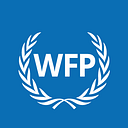Barbara Clemens: “Evidence gives you a believable story”
WFP’s Country Director in Ghana shares her thoughts on evaluation as a tool to support donor storytelling
Why is evidence important in WFP?
I think in times of crisis, and more importantly — funding constraints — I liken it to supply and demand. The supply of resources is extremely short but the demand for it is high. In Ghana we are competing with crises going on all over the world. We’re a development setting — the other settings are humanitarian. Therefore, we have to have a believable story, and I think what feeds a believable story is evidence.
Before we even approach a donor to say, we need funding, I think we have to reassure them that they will get value for money, and that value for money is based on evidence.
People invest in you if they believe your story, and if they think your story is true, and that if they are placing their resources in your hand, that you are going to be a good steward of those resources.
How useful was the Ghana Country Strategic Plan (CSP) Evaluation for the country and how will the findings shape planning in the Ghana country office?
For the Ghana context, when we started the evaluation, it was a bit late from our perspective, but it was right around that time that we were formulating our vision for our next generation CSP. When the team came to Ghana to do the evaluation, in many ways the discussions that were evolving around the evaluation were a validation of where our thoughts were, how we were shaping our CSP. To no small measure, many of the recommendations are enshrined in our next generation country strategic plan. Not just because we have to, but more so because it really does define the context that we’re working in, in Ghana and how we’re aligning that context and evidence with what the Government is positioning. Part of the evaluation included consultations with our government partners so all of those conversations were layered into the recommendations that were made. In many ways it was a validation of our vision.
What was your biggest lesson learnt from the evaluation?
The single lesson learnt is we sometimes run the risk of writing our CSP in platitudes and I think the evaluation challenged us. For example, in the Ghana context, when we’re saying we’re moving from implementation to an enabling role, or when we say we are moving away from targeting a finite number of Ghanaians to an all Ghanaian approach, the evaluation challenged us to ask: “How are you going to do it?” We had to really dig deep and think about how we were going to do it in an integrated way. It’s fine to say ‘integration’ on paper, but how are you going to shape that vision? It was very much instrumental in us being realistic with how we were going to go about that. And I really credit them with the quality of our next generation CSP.
A lot of resources are going into evaluation, would you say evaluation is worth the investment?
I think we work for an organization that has built its reputation on doing. For external critics that question the thought behind our programmes, our evaluations really lend themselves to putting evidence behind some of the things that we do; the how of it, and the explaining of it.
I think it’s worth every penny that we pay for evaluation, because it avoids just speaking theoretically. I think it’s a very useful tool and powerful when you sit in front of donors and partners and they’re asking you what are you basing your vision on? And I think we have this tool in our toolkit to say, yes, this is it.
